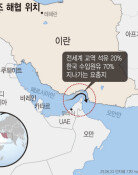[Opinion] Patriotism and Freedom of Expression
[Opinion] Patriotism and Freedom of Expression
Posted March. 20, 2005 22:24,
Recently, a report said that Won Hee-ryong, lawmaker of the Grand National Party, was drawing up a bill to punish those who advocate and praise pro-Japanese crimes or antinational acts specified in the special law for inquiring into pro-Japanese activities, excluding the behaviors from protection of freedom of expression.
Earlier in 1664, John Milton declared the importance of the liberty to know, to utter, and to argue freely according to conscience, above all liberties in Areopagitica that has become a classic for concepts of freedom of the press and expression. Voltaire is known to have said, I don`t agree with a word you say, but I will defend to the death your right to say it. It is not certain as to when and where he made the remark, but it is commonly quoted when stressing the importance of freedom of the press. The First Amendment of the U.S. Constitution, which prohibits Congress from enacting laws that limit the freedom of religion and the press, is also frequently mentioned.
The emphasis of this freedom has been, above all, the criticism of the press against those in power. In particular, exposure of abusive politics and breaches of duty or criticism against illegal acts have been emphasized. Therefore, Napoleons words are also often quoted when he said, If I were to give freedom of the press, my power could not last three days. Sadly, though, not much attention is given to the rights of individuals. The ultimate pursuit of humanity is the individual right to survival, and freedom of the press and expression can be viewed as a means to protect it in civilized society. Admittedly, this right cannot be exercised arbitrarily, but its restriction must be minimized.
Lawmaker Won is commonly known as a rational conservative. Also, at the heart of conservatism lies the protection of individual rights. Whatever good-willed motive he had in pushing for the bill, he should keep in mind that a majority of the evil laws under totalitarian regimes gagged the people under the patriotic cause of for the nation and the people.
Park Myung-jin, guest commentator and media communications professor at Seoul National University, mjinpark@snu.ac.kr







